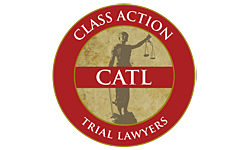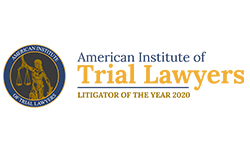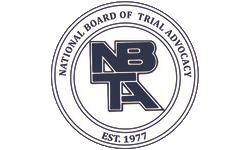Who Can Administer Medication in a Nursing Home?
When your loved one is in a nursing home, you expect them to receive the best care possible. Included in that care are different staff members who are able to do different tasks for your loved one. But not every staff member can do everything for your loved one. Some actions require a higher level of training or certification, like administering medication.
If your loved one doesn’t get their medication on time or by the correct staff member, they could be experiencing nursing home abuse. Nobody deserves to be mistreated, especially older people who require specific care. A lawyer from Golden Law Office will fight for your loved one to ensure that they get the compensation they deserve.
Nursing Home Staff and Their Duties
You might be wondering who is allowed to administer medication to your loved one in their nursing home. Medication needs to be exact and administered correctly, or else the resident could have a reaction, not receive enough, or could overdose from the drugs administered. That’s why it’s important to know who is allowed to administer medication in a nursing home so you have a full understanding of the care that your loved one is receiving and when something is wrong.
In nursing homes, Registered Nurses (RN) are required to administer or oversee the administration of medication to residents to minimize the adverse effects that can come from improper administration. Since there are fewer RNs on staff, they cannot administer medication for every patient because they have other duties, so they are able to delegate certain aspects to unlicensed assistive personnel (UAP) or medication aides. Some of the tasks they can delegate are:
- Administering topical gels
- Giving oral medication
- Hanging IV fluids
- Changing insulin pumps
If there is an injection or IV that needs to be started, though, then the RN must be the staff member to perform that task. When an RN delegates a medication administration, they must follow up immediately after to ensure that the medication was properly given and there are no adverse effects for the patient.
Problems with Medication Administration in Nursing Homes
Staffing shortages contribute to unintentional neglect in nursing homes because staff are stretched thin and don’t have time to care for the residents as they would if they had enough time. Nursing home residents are at a greater risk of experiencing medication errors because of their age and level of frailty.
Since RNs have higher workloads due to short staffing, they might end up delegating more tasks to UAP. Unfortunately, they also might delegate tasks to UAP who are not authorized to perform the task that they are assigning them, which could result in harm to the resident, or in the worst case, even death.
Medication relies on a lot of factors to be correct in order to work the best way for the patient. The patient, time, dose, medication, route, and documentation all must be correct in order for the medication to be effective and not incorrectly given. When UAP are delegated to administer medication, they must practice extra caution to ensure that they are getting every aspect right so that a patient is not experiencing nursing home abuse. It’s also important to note that residents have a right to refuse medication at any time.
Golden Law Office Will Fight for Your Loved One
Your loved one deserves only the best care from their nursing home facility. When medication is not properly given to your loved one, their health could be put at risk. If an RN or UAP makes a medication error, or if they forget to give your loved one medication because of short staffing, then you could have a nursing home abuse claim against their facility.
A Lexington lawyer from Golden Law Office can offer you the legal representation you need to hold the long-term care facility responsible for their negligence. We will fully investigate your claim and determine who was responsible for the harm to your loved one, what damage they caused, and how much you deserve in compensation for their harmful actions.
Contact our office today so that we can discuss your potential claim and get started as soon as possible.
Golden Law is a local, Kentucky Law Firm, attorneys/lawyers in Fayette County, Kentucky, working in the fields of personal injury, auto accidents, car and truck wrecks; medical malpractice: doctors, hospitals & nursing homes; senior living abuse: neglect, physical abuse, emotional abuse, dehydration, bedsores, catastrophic injuries, and broken bones. If you are considering a lawsuit, call us at 859.469.5000 for a free consultation. We are located at 771 Corporate Dr. Suite 800/ Lexington, Kentucky 40503. We handle cases all over the Commonwealth of Kentucky. We have represented and trained people in major insurance companies & major trucking companies. We have first hand experience and know the ‘inside of the insurance business’ … that’s a distinction that no other law firm can make. We’re Your Advocate. Dale Golden, Laraclay Parker.












